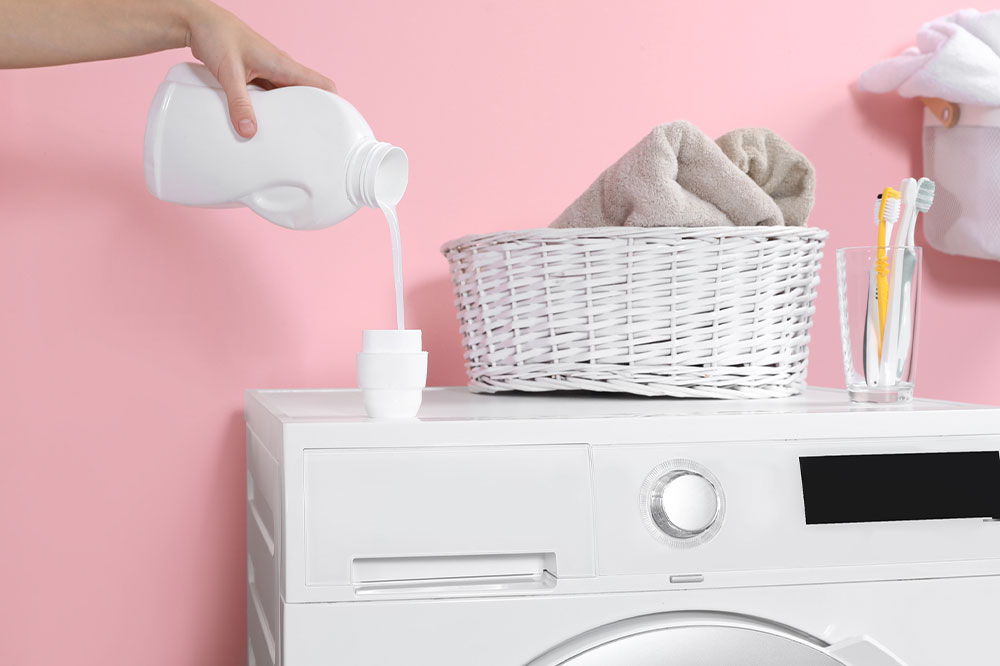Top 6 senior-friendly liquid detergents

As one ages, the choice of products also changes. This is especially true for products that come into contact with your skin, and one such product is laundry detergent. Older people need laundry detergents that are gentler on their skin. But, with so many products in the market, each with its own USPs, how do you find the best senior-friendly liquid detergents for daily use? This article lists six of the best liquid detergents that make your life easy.
Why do seniors need special detergents?
Most products are treated with harmful chemicals during the manufacturing process. While these chemicals are harmful to everyone, they are especially toxic for seniors.
Here are some reasons why seniors should pay attention to the laundry detergents that they use:
- Due to age, the outer layer of the skin thins out. Because of this, the chemicals are absorbed more quickly and can enter the bloodstream.
- The older you get, the slower these harmful chemicals are expelled from your body. This may lead to several problems, such as heart conditions, nervous system disorders, and problems with the liver and kidneys in the long run.
Best liquid detergents for seniors
Laundry detergents are a staple in everyone’s daily lives. However, because of the above-mentioned reasons, older adults need to minimize their exposure to chemicals. The best way to do this is to switch to senior-friendly detergents. Here’s a list of some of the best options in the market:
Gain Laundry Detergent
One of the reasons why it makes it to the top of the list is that it is a high-performing detergent that has excellent stain removal properties, perfect for removing stains. It is zero mess while dispensing, making the process easy and doable. Another advantage of Gain detergent is that it is a mid-range product that doesn’t burn a hole in your pocket. Besides this, Gain is a beautifully-scented detergent that is packed with scent enhancers. Your clothes will keep smelling great even weeks after washing them.
Purex Laundry Detergent
Another laundry detergent that makes it to our list is Purex. Perfect for the sensitive skin of seniors, Purex liquid detergent is extremely gentle on the skin. The laundry detergent is unscented and hence free of harm-causing chemicals. It removes stains from your clothes and leaves them clean and fresh without harmful dyes and perfumes. What’s more, it also effectively removes odors from the clothes. It is hypoallergenic and specially created for the health of people sensitive to chemicals. Another great advantage of Purex is that it is a budget-friendly detergent and is suitable for all pockets.
Mrs. Meyer’s Clean Day Laundry Detergent
One of the best laundry detergents in the market for sensitive skin, Mrs. Meyer’s Clean Day detergent is one of the few products that are made with plant-based ingredients. This makes it gentle and safe for the skin of seniors and doesn’t cause rashes. It is also free of harmful dyes and is approved by dermatologists. Despite its gentle formula, the laundry detergent is tough on stains. It contains stain-fighting enzymes that remove not just stains but also odors from the clothes. You only need to use a capful for a regular-sized load. It also comes in beautiful fragrances like lavender and rosemary.
Tide Purclean Laundry Detergent
Amongst the few laundry detergents made without harsh chemicals, Tide Purclean is perfect for seniors’ skin. This is because this is the first bio-based detergent that is made without chlorine, phosphates, dyes, or optical brighteners. This plant-based detergent is certified by the USDA and doesn’t harm your skin, and keeps it soft and safe. What’s more? This is made in manufacturing units that run on renewable wind energy, making it one of the cleanest products to use.
Despite its gentle formula, it doesn’t compromise on its stain-fighting ability. It leaves your clothes sparkly clean after each wash. It can be used easily in regular and high-efficiency washing machines with ease.
Woolite laundry detergent
Considered to be amongst the most gentle laundry detergents in the market, Woolite is safe for everyday use. It is an allergen-free product and is made without nickel, lanolin, paraben, gluten, oils, soy, and dyes, making it perfect for seniors’ skin. Though it has a gentle formula, Woolite can remove tough stains easily. These include stains such as mud, grass, and even grease from even the most delicate fabrics, including silk and lace. Since it can be used even for hand-washing, it makes doing laundry easier and quicker.
The Honest Company Multi-Enzyme Laundry Detergent
This laundry detergent is perfect for the sensitive skin of seniors, especially those who are living with skin allergies. It is a plant-based hypoallergenic detergent free of harsh chemicals and overpowering fragrances. In fact, you can even pick this detergent in an unscented version.
All this doesn’t take away from its stain-fighting ability. Its multi-enzyme formula can even remove the stains of coffee, red wine, grease, mud, and more from all kinds of fabrics. Since you only need to use a little bit of this product, it proves to be pretty cost-effective in the long run.
How to choose senior-friendly laundry detergents?
Here are some things to look out for while purchasing laundry detergents for seniors:
- Pay attention to the ingredients. Look out for ingredients such as dyes, preservatives, fragrances, etc.
- Pick up laundry detergents that are hypoallergenic, which means that they have fewer irritants and are unlikely to cause a skin reaction.
- Look for certifications such as those from the USDA or the EPA or approvals from dermatologists.
Laundry detergents can cause skin damage and other health issues if not chosen carefully. These top six options will ensure that you stay healthy without compromising on the quality of the detergents.


